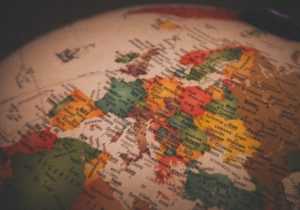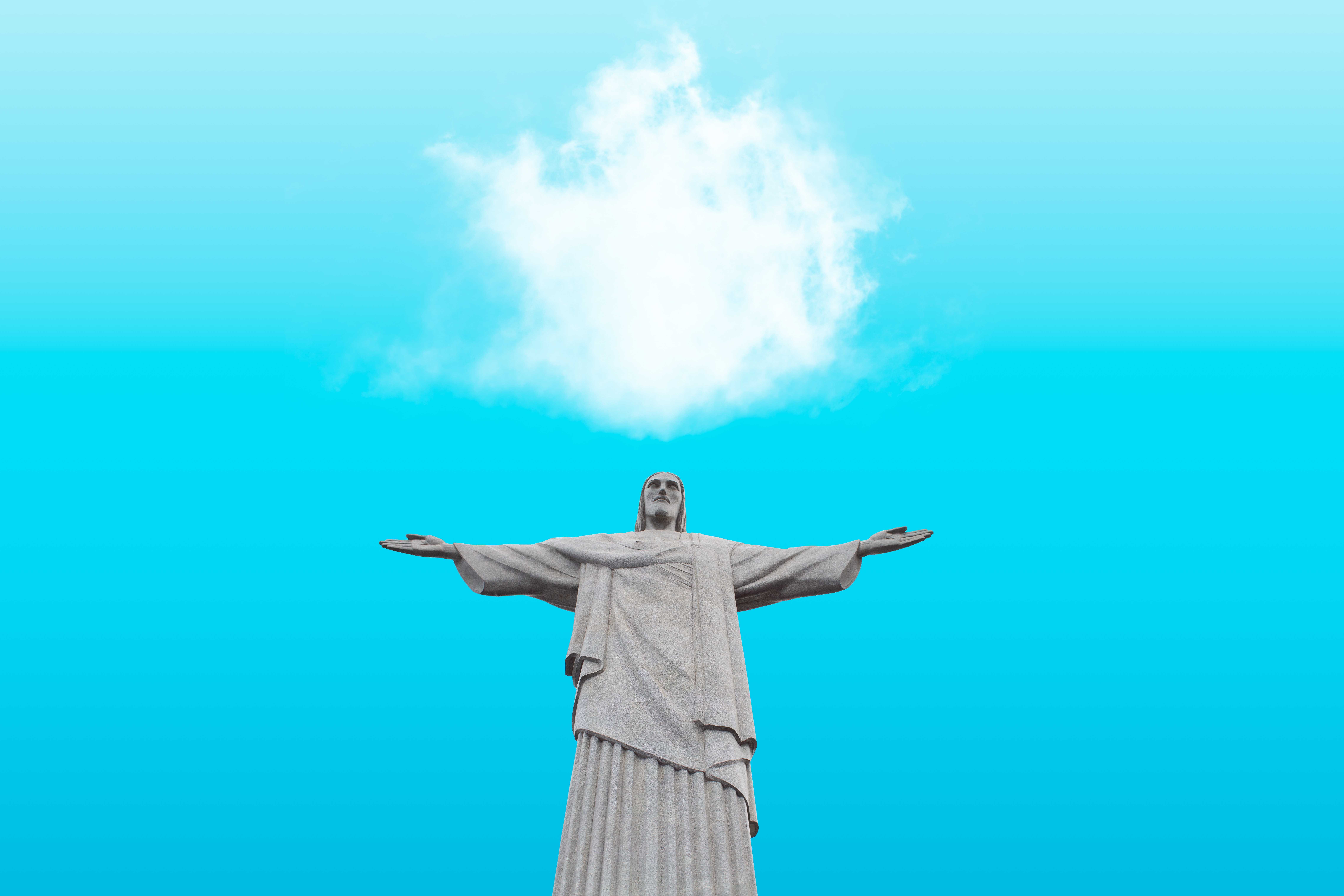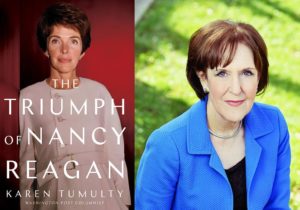Recently a young man told me he had converted from Methodist to Catholic and was politically now a “Salazarian Integralist.” I must have blanched in response! Integralism advocates a pseudo-theocratic society where the Catholic Church is politically paramount. Antonio Salazar was the dictator of Portugal from 1932 to 1968 alongside Franco in Spain.
Salazar was less repressive and less tied to the Axis powers than Franco, says his biographer Tom Gallagher, British author of Salazar: The Dictator Who Refused to Die. His “corporatist” dictatorship offered a rightist alternative to ideologies descending from the French Revolution. He was devoutly Catholic but not Integralist, limiting the church’s powers in Portugal.
Amid today’s debates over democracy and liberalism, reflecting on dictators like Salazar is instructive. I hope you learn as much from Dr. Gallagher as I did!
Tooley: Hello this is Mark Tooley, editor of Providence: A Journal of Christianity & American Foreign Policy, as well as president of The Institute on Religion and Democracy in Washington, DC, and today I have the pleasure of conversing with the biographer of a new biography of the longtime Portuguese Dictator Salazar. The biographer is Tom Gallagher, a British academic and historian, who I think currently is actually in Portugal. Is that correct, Dr. Gallagher?
Gallagher: That’s right Mark, yes.
Tooley: Appropriately so. Rather than my attempting to do so, could you just share a few words about your own background?
Gallagher: I’m a political scientist and my main area of interest was conflicts of nationalism and identity in Europe, including Britain, and how to manage them.
Tooley: And where did you teach for most of your career?
Gallagher: I taught in a university in Yorkshire, University of Bradford.
Tooley: Excellent. Well before we begin, I want to share a brief story relating to our topic. A few months ago in Washington, I went to a happy hour hosted by, or along with, the Society of Christian Ethicist and as soon as I walked in, I encountered a young man whom I met before, who immediately announced to me dramatically that he was previously a Methodist from Ohio but had since converted to become a very ardent Roman Catholic and also a Salazarian integralist. And I kind of shook, and I was trying to understand what all that entailed, but for listeners, integralistic, or integralism, is a school of thought that believes or hopes for a time when once again the church is paramount in society. And so, for this young man to have said he was a Salazarian integralist, obviously in some sense a devotee of the Portuguese dictator, but maybe you will have to learn from Dr. Gallagher exactly what that might entail. So, Dr. Gallagher, who was Salazar?
Gallagher: Salazar was a very durable conservative leader in a country which, a turbulent country, which had strong liberal traditions for over a century in Portugal, and for almost forty years he managed to keep the country very much under, you know, his control – autocratic, nationalist type of role, not a harsh dictatorship of terror and persistent violence, but one where force was definitely used in order to keep control.
Tooley: And the period of his rule coincides with that of his neighboring dictator Franco, of course, who is much better recalled. But as you say, Salazar was not nearly as repressive and violent as Franco’s regime?
Gallagher: Yeah, I mean his regime basically emerged because the liberal epoch ran out of the road. The liberals completely discredited themselves. The only national institution which commanded prestige was the military. Portugal’s major problem was that it was near to bankrupt. There were great fears that it would have to hand over its colonies to Britain or another European power in order to be bailed out, and Salazar managed to cure the country’s financial ills and his authority was such that the military decided to concede complete power to him in 1932.
Tooley: So, Salazar’s accession to power preceded Franco’s. Was he in any sense of an inspiration, or a model, or an encouragement to Franco?
Gallagher: No, I mean relations between these two Iberian countries have always been rather distant, and Franco was the type of strong-willed military figure who Salazar distrusted in Portugal. But, you know, they were both anti-communists. They both stood for traditional order. So, there was a kind of pragmatic understanding between them. Salazar’s great achievement was to persuade Franco to remain out of the Second World War, not to transform his status of non-belligerency into outright support for Hitler. And Franco, who had dismissed Salazar as a timid, rather introverted person, grew to respect him because he showed, convinced him, to make the move that probably helped to keep him in power for the rest of his life.
Tooley: So, Franco of course was helped to power by assistance from the Axis powers of Nazi Germany and Fascist Italy, but the same is not true for Salazar. He was never in any sense aligned with the Axis powers, was he?
Gallagher: No, he had a guarded respect for Mussolini for a while, but even before the outbreak of the Second World War he grew to distrust the kind of instability, recklessness of the fascist leaders. For example, when Mussolini invaded Ethiopia in 1935, Salazar was critical and he played an active role in the sanctions of the League of Nations against Italy. So, Salazar never really dwelt much on the fascist powers, but I think he probably was resentful that their lust for conquest and violence prevented the conservative order, which he believed in really taking root in Europe and cleansing Europe of all the errors that had occurred since the French Revolution of 1789. So, I think Salazar’s plans for his country were very different from the way things turned out and he would probably see the crisis starting in ’36, worsening of ’39 as having thwarted his dreams for Portugal.
Tooley: And under Salazar did Portugal maintain its historic relationship with Great Britain?
Gallagher: Yes, the British were content for Salazar to stay out of the war. They acquired great respect for what I mentioned – his ability to keep Spain out. And various quite well-known figures came to Lisbon, negotiated with him, found that he was a tough negotiator but a man who kept his word, and after the war there was no desire on the part of either later on, the conservatives to try and push Salazar out. Indeed, Portugal was invited to join NATO as a founding member in 1949, unlike Spain.
Tooley: What did Churchill think of Salazar?
Gallagher: I think Churchill was, rather like Roosevelt, impatient with Salazar. Salazar, you know, what defined him wasn’t his Catholicism, it was his nationalism. And he was determined, even in the midst of this world crisis, that not one square inch of Portuguese territory would be ceded to either the Allies or the Axis. Roosevelt regarded the Azores as very crucial in the battle of the Atlantic, as being covered by the Monroe Doctrine. So, America in order to protect its own sailors and military personnel, was entitled to take them over if necessary. Churchill rather agreed with him but the Foreign Secretary Eden and a very smart diplomat, he was the master of the containment strategy against the Soviets, George Kennan, who was briefly the Ambassador in Lisbon, managed to persuade Roosevelt not to invade. And Salazar reluctantly allowed the Americans the base towards the end of the Second World War on the Azores.
Tooley: The system by which Salazar governed if I’m recalling correctly, and correct me if I’m wrong, it’s called syndicalism?
Gallagher: The Portuguese developed a system that was a variant of the Italian fascist system, corporatist. They called it corporativism. And the distinction was that their trans-class alliance was one that emerged organically from society, whereas Mussolini had used the state to impose corporatism. But corporatism was really a sham. It was Salazar’s device for controlling the economy. A lot of Salazar’s admirers, people who grew to be disappointed in him, particularly Catholic activists in the 1930s, initially were very hopeful that corporatism would produce a genuine kind of form of social justice in which class conflict would gradually be eased out. And instead the verdict, I think even from regime insiders, was that it was a bit of a racket that primarily benefited employers. And, you know, the disappointment engendered by corporatism meant that growing numbers of Catholics turned against Salazar, especially after the post-war years.
Tooley: So, across the forty years of his rule, what role did the Catholic Church play in Portuguese society and to what extent was Salazar personally devout himself?
Gallagher: Salazar was a lifelong Catholic; a very spiritual person. He believed that he acquired inspiration from God, that his system of rule was suffused by Christian values. But Salazar always had a rather, a suspicion of the Catholic Church. I mean, he wouldn’t have been surprised at all by the emergence of the current Pope Francis, a very worldly person, deeply immersed in politics. Even before the Second Vatican Council, in which the church veered in a progressive direction, he thought that the church was too full of worldly, opportunistic people who couldn’t be relied upon. But this goes against the stereotype that his dictatorship was a clerical regime. It couldn’t be a clerical regime because Portugal had become too secular and liberal, especially the cities, the middle class in outlook, and the proof of this is the concordance signed with the Vatican in 1940, in which Salazar, unlike Franco in the concordant with the Vatican Spain signed in 1952, Salazar conceded very little to the church. The church was taxed, civil divorce remained on the statute books, and Catholic marriages had to be registered by the state. Portugal, unlike Spain, was not officially a Catholic country. So, Salazar felt that there was no point in placing the church even near the center of power or giving it a privileged position. He may have concluded that the church had been too weakened by the long years of anti-clerical liberal, anti-clericalism, and that the best that could be hoped for was some kind of conservative elite-led regime.
Tooley: So, my friend who self-identified as a Salazarian integralist, Portugal under Salazar was itself never integralist because the church was not paramount?
Gallagher: No, I mean Salazar’s great friend, Cardinal Cerejeira, his period as the head of the Portuguese Church was almost coterminous with Salazar’s time in charge of the country. Appearances are deceptive, you know. In 1932 it is said that Salazar turned to this cardinal and said, “Manuel, from now on our paths diverge. You will be leading the church. I will be leading the country. I answer to the president of the republic; I do not answer to you on anything.” So, basically this was a message that, you know, the church could not expect huge favors and they didn’t get them. I mean, I would say that the figure who most influenced Salazar was the French conservative polemicist Charles Maurras, who he was the founder of the Action Francaise, said French Action movement. And he, in many ways, he is seen as a destructive figure by conservative Catholics today with an international perspective, because he was ready to use violence and revolutionary means in order to promote a conservative order. And some people say that Salazar fell too much under the sway of someone who wasn’t actually a believer himself, but he believed in a conservative French authoritarian state.
Tooley: Now Salazar died a few years before Franco and the regime he built lasted a couple of years, but again, after Franco’s death Spain went democratic, so did Portugal. So, what happened? And what did Salazar intend to occur in Portugal after his demise?
Gallagher: Well, I think Salazar saw his rule increasingly as a holding operation. I think if these world crises hadn’t intervened, it probably would have been a more collegiate type of regime in which he wouldn’t have been an absolute ruler. And the prospects of it evolving, let’s say, in the direction of a French scholar system would have been quite bright. But Salazar was on the defensive. World developments – rise of communism, rise of anti-colonialism – were, you know, didn’t suit his rule. And I think he was pessimistic about what came after, but I think what explains his marathon tagging power was his enormous willpower – his determination to see out his opponents. And it was this that enabled him to hang on. I mean, he believed that his approach to Portugal and the world was right. I spend quite a lot of time in the book because I do think it’s relevant trying to show why he was so distrustful of America, so pessimistic about the rise to global power of America, because he thought that the American political elite lacked the sagacity, the wisdom to be able to carry this authority effectively. And there was a huge bust up between him and Kennedy in the early 1960s. Kennedy tried to overthrow him in 1961, which I’m going to quite consider more detail about, and it just confirmed his contempt for American statecraft.
Tooley: Dr. Tom Gallagher, thank you so much for this very enjoyable conversation about your new biography Salazar: The Dictator Who Refused to Die.
Gallagher: Thank you very much indeed, Mark.







 Sponsor a student for Christianity & National Security 2024
Sponsor a student for Christianity & National Security 2024